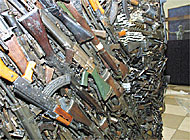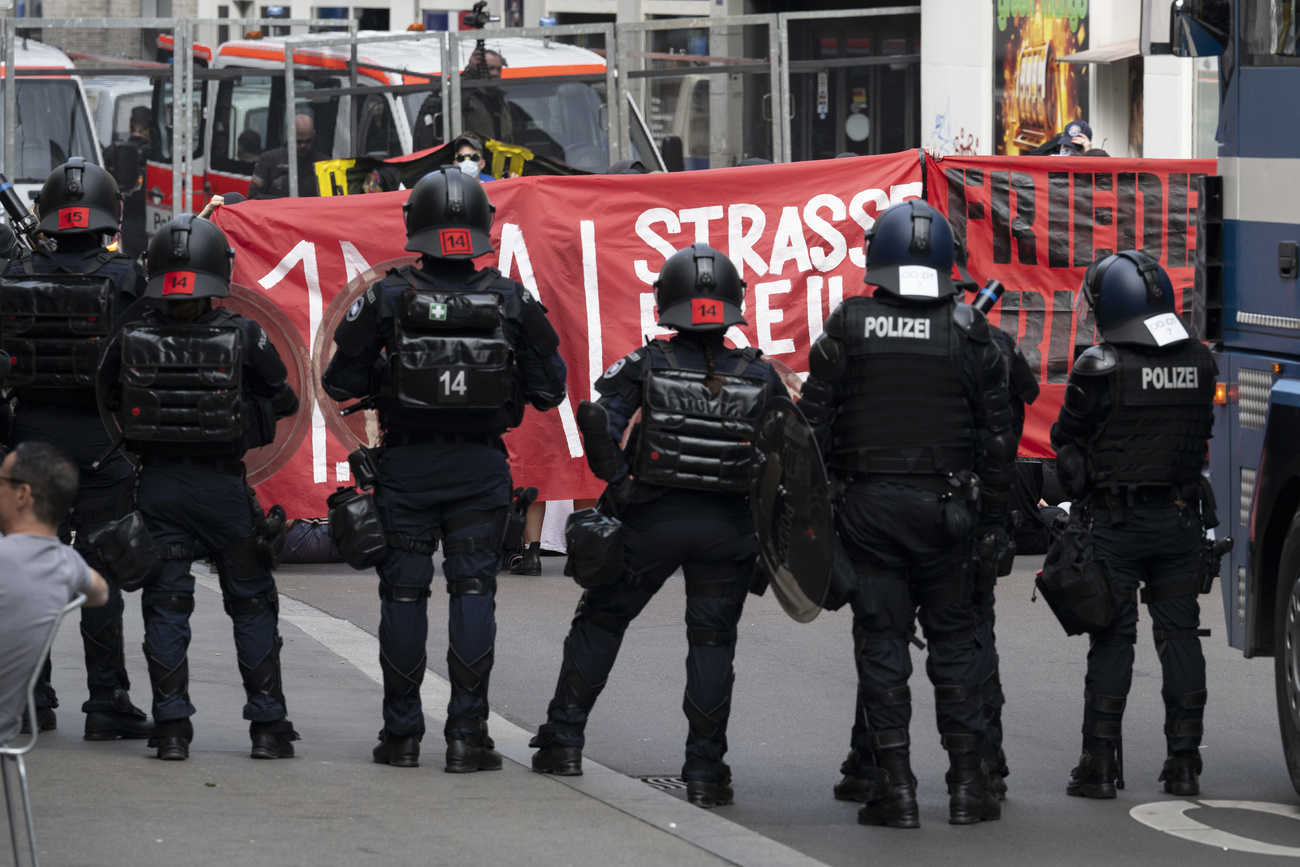Negotiators go head-to-head at UN conference on small arms

Swiss negotiators are among those from governmental and non-governmental organisations (NGOs) trying to hammer out an agreement to curb global trafficking of small arms at a United Nations conference in New York.
Swiss hopes of pushing for an international treaty governing the control of small arms appeared to suffer a setback this week, after the United States delegation said it would not tolerate any attempts to “constrain legal trade and manufacturing of small arms and light weapons”.
“The United States will not join consensus on a final document that contains measures contrary to our constitutional right to keep and bear arms,” announced John Bolton, US under-secretary of state for arms control.
US negotiators did not make any specific reference to a joint Swiss-French initiative tabled at the start of the conference to set up a mechanism for marking and registering all small arms.
But Washington’s refusal to sign up to an international small arms treaty has been seen by analysts as a major blow to international efforts to combat the illegal trade in small arms.
Switzerland and France formally abandoned their joint initiative as both countries conceded global agreement to the proposal was impossible.
“From now on, we expect to move forward step by step,” said Daniela Stoffel, spokeswoman for the Swiss foreign ministry.
A softly, softly approach, Stoffel insisted, “will allow us to mobilise the support of more countries”.
“Both Switzerland and France are in agreement with this way forward,” she added.
Some 189 nations including Switzerland are trying to devise a voluntary agreement to curb the global trade in weapons.
The main event at a plenary session of the ten-day conference was the publication of a “Small Arms Survey” by the Geneva-based Graduate Institute of International Studies.
The survey’s authors found that only a tiny percentage of the world’s 550 million small arms find their way into the hands of rebel forces in Asia and Latin America.
“We looked at the number of active rebel groups in the various wars and conflicts around the world,” Keith Krause, project leader at the Institute, told swissinfo.
“It turns out that in many of these conflicts the number of fighters on both sides is very small, and it’s clear that they do not have huge stockpiles of weapons.”
But Krause cautioned conference delegates against ignoring the issue of illegally-held weapons and claimed the report challenged the international community to take action to reduce the number of legally purchased weapons falling into the wrong hands.
“What we really need to focus our attention on,” said Krause, “is how weapons legally held by governments and civilians leak into the hands of these rebels, because clearly a small number of weapons are causing a great deal of death and destruction.”
The United Nations estimates that small arms are responsible for the deaths of half a million people a year, including 300,000 in armed conflicts.
“Governments need to be sure they put in place adequate measures for managing stocks, reducing surpluses and keeping them secure.”
Krause acknowledged that the biggest challenge was to persuade individual governments they need to develop measures to deal with the legal possession of weapons.
“This doesn’t mean guns need to be made illegal, but something has to be done. We know that almost every illegal weapon starts by being legally produced and legally purchased.”
Authors of the report deny the evidence was gathered in an attempt to convince countries like the US to consider tougher action in the fight against illegal arms.
“We want the evidence we have to speak for the problem and help people devise solutions,” Krause said.
swissinfo with agencies

In compliance with the JTI standards
More: SWI swissinfo.ch certified by the Journalism Trust Initiative








You can find an overview of ongoing debates with our journalists here . Please join us!
If you want to start a conversation about a topic raised in this article or want to report factual errors, email us at english@swissinfo.ch.